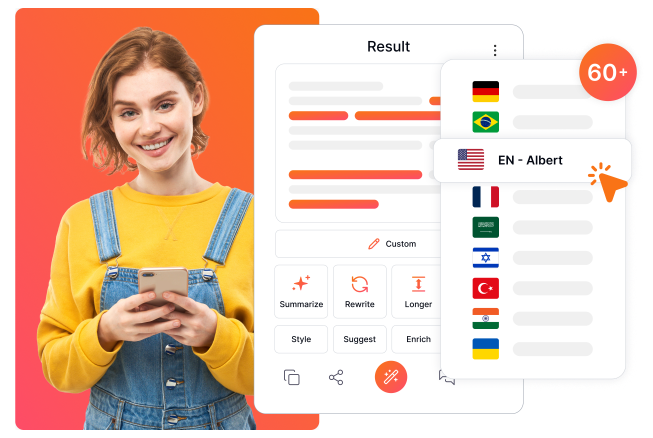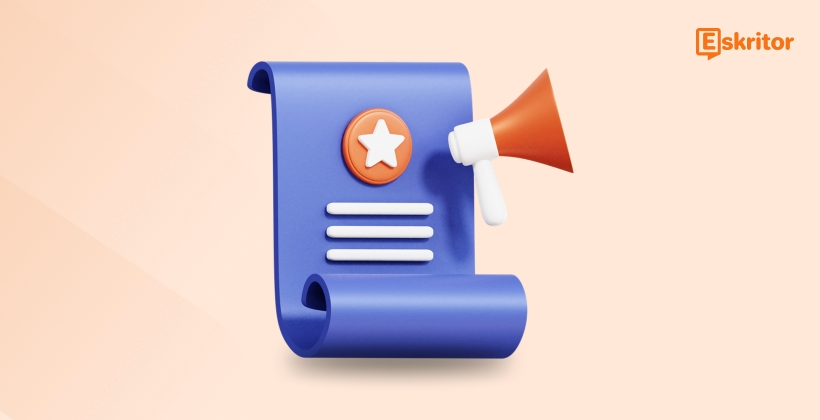The Future of AI Writing Technology Explained
The Future of AI Writing Technology Explained
Blog Article
How AI Writers Are Transforming Content Creation
Artificial intelligence (AI) publishing engineering has changed quickly within the last decade, reshaping the way in which we develop and communicate with published content. From syntax correction tools to AI-generated novels, the number of choices appear limitless. But where just is this engineering heading? Let's explore the improvements, problems, and possible potential of ai grammar checker.

How AI Writing Engineering Operates Today
At their core, AI publishing engineering depends on Normal Language Control (NLP) and unit learning. These technologies enable types to understand, make, and improve human language. Methods accessible nowadays excel at projects like:
1. Material Development
AI has reached a spot wherever it can create complete blog articles, social media marketing captions, and actually news articles. Some designs can handle mimicking human publishing styles therefore effortlessly that distinguishing between AI- and human-written material has become increasingly difficult.
2. Syntax and Style Idea
AI-powered publishing personnel don't only check for syntax and spelling mistakes; they also provide ideas to boost tone, quality, and sentence structure, creating complex writing accessible to a wide audience.
3. Feeling Analysis
AI may consider the emotional tone of a piece, permitting corporations to evaluate how their communications may resonate with readers. This really is particularly of use in marketing and customer interaction.
The Recent Traits in AI Publishing Engineering
A few trends are shaping the next stage of AI-powered publishing instruments:
• Personalization
AI publishing engineering is significantly effective at tailoring content to individual preferences. Versions can conform to a user's writing fashion, ensuring the output thinks authentic.
• Multilingual Capabilities
Many AI resources are growing their world wide achieve by providing increased interpretation functions and help for numerous languages.
• Improved Research Characteristics
AI tools today get the capacity to analyze vast levels of information and provide fact-checked, well-researched publishing in seconds, simplifying the procedure for professionals in industries like legislation, financing, and journalism.
What the Future Holds for AI Publishing Engineering
1. Improved Creativity
While recent AI is good at generating material, its creativity continues to be limited to patterns within their training data. Potential AI isn't only expected to assist but to produce original, informative works that challenge individual imagination.
2. Easy Collaboration
Imagine an AI that works along side you in real-time, performing your phrases, completing live edits, and also brainstorming ideas. AI writing methods may shortly become co-authors, allowing creativity to movement uninterrupted.
3. Ethical and Available Design
With rising issue about plagiarism, misinformation, and tendency, designers work toward more translucent AI instruction operations and ethical implementation. Future resources will more than likely offer more comprehensive citations and actions to make sure accountability.
Difficulties and Concerns
The progress of AI publishing technology isn't without hurdles, including:
• Ethical Issues

Who owns content produced by AI? How do we assure AI-generated content isn't scattering misinformation? These debates stay unresolved.
• Human-AI Stability
Can AI match human creativity or entirely replace specific functions? Several writers and musicians worry about their relevance in a AI-driven world.
• Supply Divide
Not totally all companies or regions have equal usage of cutting-edge AI resources, raising issues in regards to the influence of the engineering on worldwide inequality.
Changing the Way We Create
AI publishing engineering is still in their infancy compared to its potential. Whether you're a student developing essays, a material marketer targeting particular readers, or perhaps a author seeking enthusiasm, AI methods may continue to revolutionize the publishing process. The following decade claims breakthroughs that mix human ingenuity with device intelligence, developing a potential where publishing is more efficient, accessible, and impactful than actually before.
Report this page